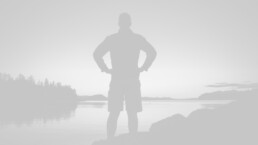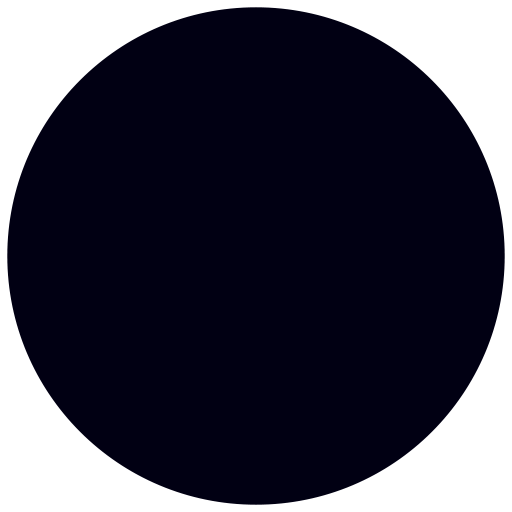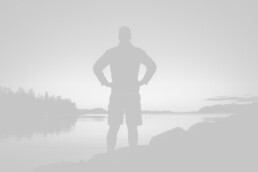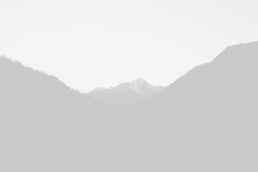You have to learn the rules of the game. And then you have to play better than anyone else.
Albert Einstein
I was good at academics, so decisions of my life had been pretty simple and straight. Being pretty confident I would make it to the best junior college of my town in the first round itself, never made me consider any other option. I loved psychology since childhood, but engineering was the safest option. Being born in a middle class family, thinking of risking your career to make it to medical field was not sane. I grew up hearing ‘Only doctor’s children can afford that field’ and finally ended up believing it. No one around me believed in taking risks. Everyone worshiped security. I grew up doing the same. When you step out of these four walls on a peaceful morning, you realize how much nature has to offer to you. Its boundless. Your thoughts, worries, deadlines won’t resonate here. Everything will flow away along with the wind. And you will realize every answer you had been looking for, was always known to you. It would mean a lot to me if you recommend this article and help me improve.
When you are alone
You will remember the people more than the place.
Talking to randos is the norm. I’ll never forget the conversation with the aquarium fisherman, forest ranger, and women at the Thai market. It’s refreshing to compare notes on life with people from vastly different backgrounds. When you are alone for days or weeks at a time, you eventually become drawn to people.
When you meet fellow travelers, you’ll find they are also filled with a similar sense of adventure and curiosity about the world. Five days of friendship on the road is like five months of friendship at home. It’s the experiences that bond you together, not the place. A rule I followed that worked well: be the first to initiate conversation. I met some incredible people by simply being the first to talk.
Make a radical change in your lifestyle and begin to boldly do things which you may previously never have thought of doing, or been too hesitant to attempt. But once you become accustomed to such a life you will see its full meaning and its incredible beauty.
Travel can be affordable.
Long term travel is different than a luxury vacation. The point is to see the world, not stay in a 5-star hotel. During the trip, I stayed on a strict budget. The goal was to spend no more than $33 per day on accommodations. After a year, I was able to spend only $26.15 per day by booking through HostelWorld and Airbnb. When I wanted to meet people, I’d stay in a shared room at a hostel. When I wanted to be alone, I’d book a private room with Airbnb.
Take the cost of your rent or mortgage + food per month and divide it by 30. This is how much it costs per day to live at home. You will find that it’s possible to travel the world for roughly the same amount. Or, if you live in an expensive city like San Francisco, far less.
English is a universal language.
I was surprised how many people spoke English (apparently 1.8 billion people worldwide). Places where English was less prevalent, I made an effort to learn a handful of words and phrases in the local language. Even though it’s passable, I do desire to learn another language fluently. You can only take the conversation so far when all you can say is: “¿Esto contiene gluten?”
It’s possible to communicate a lot without saying a word. For instance, I left my phone at a restaurant in Chile. I pointed at the table where I was sitting, put my hand to my ear like a phone, then shrugged — 2 minutes later, my phone had been retrieved.
Trust your intuition.
I learned to trust that tiny voice in my head a bit more. When you are alone in a foreign country and your phone is dead, you are forced to trust your intuition. Is this neighborhood safe to walk around? Is this person someone I should interact with? Am I heading the right direction? Intuition is like a muscle. The more you use it, the stronger it becomes. It’s feels like a sixth sense when you’re able to read between the lines of a situation.
The world is endless. The world’s a tiny neighborhood. My fav people are the ones who can hold two impossible ideas in their heads.
Stumbled the concept

Lifestyle
If you’re not sure how much time you are actually spending on various tasks, use a tool like Rescue Time (their free version is excellent!) which runs in the background and tracks where your time is being spent. It can even send you weekly reports so you know exactly how much time you wasted on Facebook, or spent in your email inbox! You can assign different websites or programs/applications on a scale of very distracting to very productive, so you can see at a glance things like: which days of the week you’re most productive, which times of the day you’re most productive, and the sites on which you’re spending the most distracting time. I stumbled upon the concept of margin while reading a post by Michael Hyatt, which led me to design my ideal week.
Richard Swenson, M.D. (who wrote the book: Margin: Restoring Emotional, Physical, Financial, and Time Reserves to Overloaded Lives) describes margin like this:
Last year I wrote about why booking too far in advance can be dangerous for your business, and this concept of margin so eloquently captures what I had recognized had been my problem: I was so booked up with clients that I wasn’t leaving any margin for error, growth, planning, or reflection. I wasn’t really growing my business in a sustainable way; I was just booking one client after the next. At the time this seemed like a good thing: doesn’t growing my business mean getting more clients?
What if instead of booking up to 100% capacity (which more often than not ends up being closer to 120%), we only booked up to an 80% capacity?
What if we left more room for growth (personal or professional) and stopped being one with “busy-ness”?
I spent nearly a year turning down every new project (and even getting rid of old ones) so that I could reduce my workload, build in more margin, and create what is now Digital Strategy School. It takes time to build margin into your schedule.
What could you accomplish with 20% more time?
Write a book. Create a program. Update your contracts and proposals (which has been on your to-do list for how long..?) Spend more time with your family. Go above and beyond for a client. Learn something new. Actually follow through on the things that have been nagging at you for a long time.
When you design your ideal week, you start to see that the time you think you have is often not in alignment with how much time you actually have.
After designing my ideal week, I had a much clearer idea of how to create a framework for my week that would empower me to feel more focused by theming days of the week, and even parts of the day. SO simple, I know. Some of you have been doing this for ages and you’re already a pro, and some of you who saw my schedule said “woah, that’s so rigid, I need more flexibility!”
Structure enables flexibility.
If you’re not sure how much time you are actually spending on various tasks, use a tool like Rescue Time (their free version is excellent!) which runs in the background and tracks where your time is being spent. It can even send you weekly reports so you know exactly how much time you wasted on Facebook, or spent in your email inbox! You can assign different websites or programs/applications on a scale of very distracting to very productive, so you can see at a glance things like: which days of the week you’re most productive, which times of the day you’re most productive, and the sites on which you’re spending the most distracting time. Turns out I’m consistently “in the zone” around 3pm in the afternoon; so instead of trying to tackle highly creative work first thing in the morning (when my brain is barely functioning), I handle it in the afternoon, when I know I’m at my peak!
Creating more margin has been game-changing for my business.
What would be possible for yours?
You have to learn the rules of the game. And then you have to play better than anyone else.
Albert Einstein
I was recently quoted as saying, I don’t care if Instagram has more users than Twitter. If you read the article you’ll note there’s a big “if” before my not giving of said thing.
Of course, I am trivializing what Instagram is to many people. It’s a beautifully executed app that enables the creation and enjoyment of art, as well as human connection, which is often a good thing. But my rant had very little to do with it (or with Twitter). My rant was the result of increasing frustration with the one-dimensionality that those who report on, invest in, and build consumer Internet services talk about success.
Numbers are important. Number of users is important. So are lots of other things. Different services create value in different ways. Trust your gut as much (or more) than the numbers. Figure out what matters and build something good.
The new brand identity
I stumbled upon the concept of margin while reading a post by Michael Hyatt, which led me to design my ideal week. Richard Swenson, M.D. (who wrote the book: Margin: Restoring Emotional, Physical, Financial, and Time Reserves to Overloaded Lives) describes margin like this:
Margin is the space between our load and our limits. It is the amount allowed beyond that which is needed. It is something held in reserve for contingencies or unanticipated situations. Margin is the gap between rest and exhaustion, the space between breathing freely and suffocating.
Last year I wrote about why booking too far in advance can be dangerous for your business, and this concept of margin so eloquently captures what I had recognized had been my problem: I was so booked up with clients that I wasn’t leaving any margin for error, growth, planning, or reflection. I wasn’t really growing my business in a sustainable way; I was just booking one client after the next. At the time this seemed like a good thing: doesn’t growing my business mean getting more clients?
A long redesign.
What if instead of booking up to 100% capacity (which more often than not ends up being closer to 120%), we only booked up to an 80% capacity?
What if we left more room for growth (personal or professional) and stopped being one with “busy-ness”?
I spent nearly a year turning down every new project (and even getting rid of old ones) so that I could reduce my workload, build in more margin, and create what is now Digital Strategy School. It takes time to build margin into your schedule.Write a book. Create a program. Update your contracts and proposals (which has been on your to-do list for how long..?) Spend more time with your family. Go above and beyond for a client. Learn something new. Actually follow through on the things that have been nagging at you for a long time.
When you design your ideal week, you start to see that the time you think you have is often not in alignment with how much time you actually have.
After designing my ideal week, I had a much clearer idea of how to create a framework for my week that would empower me to feel more focused by theming days of the week, and even parts of the day. SO simple, I know. Some of you have been doing this for ages and you’re already a pro, and some of you who saw my schedule said “woah, that’s so rigid, I need more flexibility!”
Structure enables flexibility.
If you’re not sure how much time you are actually spending on various tasks, use a tool like Rescue Time (their free version is excellent!) which runs in the background and tracks where your time is being spent. It can even send you weekly reports so you know exactly how much time you wasted on Facebook, or spent in your email inbox! You can assign different websites or programs/applications on a scale of very distracting to very productive, so you can see at a glance things like: which days of the week you’re most productive, which times of the day you’re most productive, and the sites on which you’re spending the most distracting time. Turns out I’m consistently “in the zone” around 3pm in the afternoon; so instead of trying to tackle highly creative work first thing in the morning (when my brain is barely functioning), I handle it in the afternoon, when I know I’m at my peak!
Creating more margin has been game-changing for my business.
What would be possible for yours?
A day alone at the sea
Just the other day I happened to wake up early. That is unusual for an engineering student. After a long time I could witness the sunrise. I could feel the sun rays falling on my body. Usual morning is followed by hustle to make it to college on time. This morning was just another morning yet seemed different.
Witnessing calm and quiet atmosphere, clear and fresh air seemed like a miracle to me. I wanted this time to last longer since I was not sure if I would be able to witness it again, knowing my habit of succumbing to schedule. There was this unusual serenity that comforted my mind. It dawned on me, how distant I had been from nature. Standing near the compound’s gate, feeling the moistness that the air carried, I thought about my life so far.
I was good at academics, so decisions of my life had been pretty simple and straight. Being pretty confident I would make it to the best junior college of my town in the first round itself, never made me consider any other option. I loved psychology since childhood, but engineering was the safest option. Being born in a middle class family, thinking of risking your career to make it to medical field was not sane. I grew up hearing ‘Only doctor’s children can afford that field’ and finally ended up believing it. No one around me believed in taking risks. Everyone worshiped security. I grew up doing the same.
‘Being in the top will only grant you a good life’ has been the mantra of my life. But at times, I wish I was an average student. I wish decisions would have not been so straightforward. Maybe I would have played cricket- the only thing I feel passionate about. Or maybe I would have studied literature (literature drives me crazy). Isn’t that disappointing- me wishing to be bad at academics. It’s like at times I hate myself for the stuff I am good at.
This is what has happened to us. We want the things we have been doing forcefully to fail. And then maybe people around us would let us try something else or our dreams. We are accustomed to live by everyone else’s definition of success. We punish people for the things they are passionate about, just because we were unable to do the same at some point in our life.
I feel like these concrete buildings have sucked our desires and our dreams. We are so used to comfort that compromise seems like a taboo. We have lost faith in ourselves. If we can make through it right now, we can do the same in the days to come. You only need a desire to survive and nothing more- not money or cars or designer clothes.
Staying locked up in four walls have restricted our thinking. I feel like our limited thinking echoes through this wall. We are so used to schedules and predictable life that we have successfully suppressed our creative side.
When you step out of these four walls on a peaceful morning, you realize how much nature has to offer to you. Its boundless. Your thoughts, worries, deadlines won’t resonate here. Everything will flow away along with the wind. And you will realize every answer you had been looking for, was always known to you.
It would mean a lot to me if you recommend this article and help me improve. I would love to know your thoughts!
Trust in your intuitions
Once I gave the headphones a thorough once-over exam, I tried them on. As I mentioned, they have a classic over-the-ear style and just looking at them, the padding on the ear pieces seem adequate and the peak of the headband seemed to be a bit lacking, but you don’t really know comfort unless you try on the product. So, I slipped the headphones on and found them to be exquisitely comfortable. Once I gave the headphones a thorough once-over exam, I tried them on. As I mentioned, they have a classic over-the-ear style and just looking at them, the padding on the ear pieces seem adequate and the peak of the headband seemed to be a bit lacking, but you don’t really know comfort unless you try on the product. So, I slipped the headphones on and found them to be exquisitely comfortable.
If no one hates you, no one is paying attention. If attention is what you want for vanity, confidence, or, hell — to make a decent living — then know that it’s not instantaneous. Every single person that you’re currently paying attention to, at some point in their lives, was in your exact position.
You need to be
true to yourself
Just like every other human on the planet, I have epically awesome days and days when life just turne against me. And while I can’t stand most self-help (see: tired quotes over stock photography on Instagram), sometimes I need a little pick-me-up. And most of the time, in order to get out of a slump (because my brain leans more into math/science than anything else), I need to drop a logic bomb on my ass.
Yes, this is a long article. But here’s the thing — if you’re reading this in your inbox and are already like, “fuck this!” delete it. No hard feelings. If you’re reading this in a browser on a website, and you see how tiny the scroll-bar is because of how far you still have to scroll to get to the bottom, close this tab and go back to 140-character tidbits of advice. Still with me? Phew. Just had to weed out all the folks from points: #1, #4 and #8. Welcome friends, onward we go.

Remember to
never give up
If no one hates you, no one is paying attention. If attention is what you want for vanity, confidence, or, hell — to make a decent living — then know that it’s not instantaneous. Every single person that you’re currently paying attention to, at some point in their lives, was in your exact position. They kept at it and worked enough so that others started listening. Also know that if no one is watching, you can experience true freedom. Dance in your underwear. Write entirely for yourself. Like there’s a going-out-of-business sale. Find yourself — not in some coming-of-age hippie way involving pasta and ashrams— but in a way that helps you draw your own line in the sand for what matters and what doesn’t. Do what you want to do, just because you want to do that thing. This will build confidence that will come in handy later.
Once I gave the headphones a thorough once-over exam, I tried them on. As I mentioned, they have a classic over-the-ear style and just looking at them, the padding on the ear pieces seem adequate and the peak of the headband seemed to be a bit lacking, but you don’t really know comfort unless you try on the product. So, I slipped the headphones on and found them to be exquisitely comfortable. Once I gave the headphones a thorough once-over exam, I tried them on. As I mentioned, they have a classic over-the-ear style and just looking at them, the padding on the ear pieces seem adequate and the peak of the headband seemed to be a bit lacking, but you don’t really know comfort unless you try on the product. So, I slipped the headphones on and found them to be exquisitely comfortable.
If no one hates you, no one is paying attention. If attention is what you want for vanity, confidence, or, hell — to make a decent living — then know that it’s not instantaneous. Every single person that you’re currently paying attention to, at some point in their lives, was in your exact position. They kept at it and worked enough so that others started listening. Also know that if no one is watching, you can experience true freedom. Dance in your underwear. Write entirely for yourself. Like there’s a going-out-of-business sale. Find yourself — not in some coming-of-age hippie way involving pasta and ashrams— but in a way that helps you draw your own line in the sand for what matters and what doesn’t. Do what you want to do, just because you want to do that thing. This will build confidence that will come in handy later.







